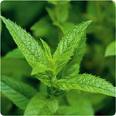 Over indulgence and holidays seems to go hand in hand. Rich, tempting food seems to be everywhere, leaving us with heartburn and indigestion. For thousands of years people have turned to natural plants to relieve their suffering from acid reflux, heartburn and indigestion. Many found Chinese herbs, fruits and roots were the answer to what ailed them. Here are a four herbal remedies from the history books that helped back then and still help today with the age old problem of indigestion.
Over indulgence and holidays seems to go hand in hand. Rich, tempting food seems to be everywhere, leaving us with heartburn and indigestion. For thousands of years people have turned to natural plants to relieve their suffering from acid reflux, heartburn and indigestion. Many found Chinese herbs, fruits and roots were the answer to what ailed them. Here are a four herbal remedies from the history books that helped back then and still help today with the age old problem of indigestion.1. Hawthorne Berry (Shan Zha) not a strawberry or raspberry but a sour fruit (I call it an herb) that works great after the overindulgence of meats and greasy foods. If you’re prone to familiar heartburn, abdominal distension and acid regurgitation this herb is for you. Shan Zha has also an abundance of data as a cardio-tonic. Similar to many Chinese herbs it has the ability to lower cholesterol and blood pressure, and even widens the coronary arteries. If you’re a buffet gourmet this is your herb. Shan Zha can be found dried at most Asian markets or online. Boil it and drink as a tea.
2. Massa Fermentata (shen qu) Also known as medicated leaven, massa is not just one herb, but actually a mixture of fermented wheat flour, bran and a few other herbs. In traditional Chinese medicine, massa’s main function is to eliminate indigestion, and harmonize the stomach and stop diarrhea. Dried massa is available in Asian markets, often referred to as “medicinal fermented mass,” which usually contains orange peels and different herbs. As of this writing, there are no known drug interactions or side-effects associated with massa.
(In 1997, a professor of School of Agriculture of Tokyo University of Japan, Akira Endo discovered that monacolin K, a by product during the fermentation process of shen qu, can inhibit the synthesis of cholesterol in human body and can promote circulation.)
3. Licorice Root (Gan Cao) has a long and lustrous history in Chinese medicine. As one of the most widely used herbs, licorice has a host of benefits. It’s ability to increase production of mucin provides proven benefits to the mucous membrane lining of the digestive tract and its flavonoids also protect against stomach acid. Licorice flavonoids have anti-inflammatory, anti-spasmodic and anti-acid effects along with many other actions. Use raw, boil and drink as a tea, or purchase in capsules. Be aware that capsule products won’t be the same strength as raw herbs unless you take large handfuls at a time.
4. Mint – Peppermint is well known as a breath freshener but its actions go much deeper. The active component, menthol oil, activates our saliva glands as well as glands that secrete digestive enzymes. Mint helps to balance intestinal flora by eliminating the harmful bacteria, parasites and viruses present in the gut, the main causes of bad breath and acid reflux. Buy it fresh and let it seep in hot water a few minutes and drink, you can strain out leaves. Don’t boil it for any length of time, you will likely cook out the beneficial menthol oils.
When you’re looking for natural remedies for indigestion you can always try the “old stand bys”: eat small meals, chew your food thoroughly to activate those digestive enzymes, eat fresh not processed foods and don’t grab food in a rush. That’s all good advice but when it doesn’t work, get yourself some of the Chinese herbs listed above, all guaranteed to work.
References
- Lu HY, et al. New usages of jian pi wan. Journal of New TCM 1992;24(11):44-45.
- Wang GJ. Treating 33 cases of duodenal stasis with jian pi wan. National Journal of Medicine Forum 1995;10(5):41.
- Xiong ZF. Treating 300 cases of child diarrhea with modified jian pi wan. Journal of Chengdu College TMC 1986;(3):29-30.
- Yu WP. Comparative experimental research in jian pi fang and vitamin E’s effect on fruit fly life span. Jiangsu Journal of TCM 1991;12(8):33-34.
- http://www.www.alternativehealing.org/shen_qu.htm

